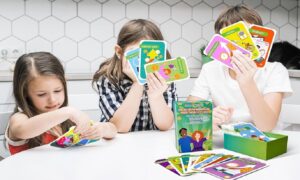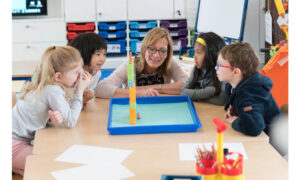Young students need strong thinking skills. Third grade is a key development stage. Creative games enhance cognitive power greatly. Children solve problems actively this way. Play makes learning fun and lasting. Critical thinking starts with good play. These fun activities grow minds effectively now. Teachers value these strong educational methods.
Logic Puzzles Teach Deep Analysis
Logic puzzles sharpen young minds effectively. These puzzles require careful observation skill. Students look closely for hidden rules. They must identify repeating sequences quickly. Pattern recognition is highly important work. Simple substitution ciphers are good examples. Sudoku grids challenge numerical placement. Children predict outcomes with precision. They test their initial assumptions first. This mental testing strengthens reasoning ability. Error analysis becomes a valuable tool. Failure provides data for better attempts. Logic builds excellent problem solving habits. Success boosts student confidence naturally. These games prepare minds for future math. Such engagement makes learning stick well. They handle complex issues easily now with the third grade critical thinking activities.
Collaborative Play Requires Teamwork
Team games promote shared mental effort. Students must communicate their ideas clearly. They listen well to others’ suggestions actively. Collaborative story building is highly effective. One child starts the tale simply. Next child adds one meaningful sentence often. Group members build complex narratives together. This develops fluency and imagination greatly. Students learn to compromise immediately. They integrate differing perspectives into one whole. Resources from Mission.io support these efforts. Platform tools aid group organization readily. Children practice verbal reasoning strategies daily. They learn to defend their creative choices well. Team play is crucial life preparation work. Good teamwork solves big problems faster.
Spatial Reasoning Uses Block Play
Spatial reasoning ability is very fundamental. It involves seeing objects in three dimensions. Construction toys are perfect exercises. Blocks help geometry understanding quickly. Students visualize shapes rotations mentally. They plan structures before building begins. Tangram puzzles require keen spatial sense. Players rearrange simple shapes accurately. Goal is fitting parts into specific outlines. This demands precise visual estimation skill. Children manipulate components successfully. They learn about area perimeter concepts early. Such play strengthens internal visual modeling. Good spatial skills help map reading later. These activities bridge imagination and reality. Students improve their focus greatly now. Visual thinking allows creative solutions.
Strategy Games Develop Planning
Strategy board games teach future planning skills. Players must anticipate opponents’ actions well. They consider multiple possible moves deeply. Chess provides excellent strategic training daily. Simplified versions fit third graders’ abilities. Checkers also demands tactical positioning skill. Students learn about cause and effect relationships. Every action has a definite consequence later. They develop patience and thoughtful approach. Mission.io offers digital strategy adaptations too. These digital versions track student progress automatically. Learning requires sustained mental effort often. Good strategy develops long term foresight greatly. Thinking ahead is invaluable skill acquisition. Students become highly adaptable thinkers quickly. Planning secures better outcomes always.



